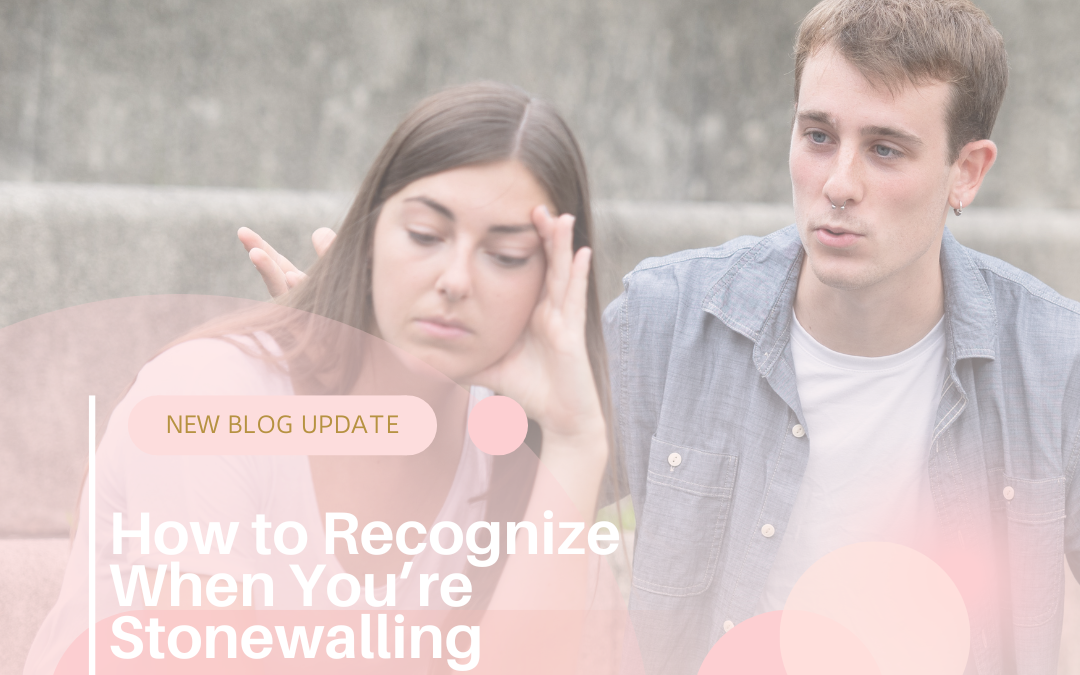Have you ever shut down during a difficult conversation—gone quiet, walked away, or stared off into the distance while your partner was still talking? If so, you may have been stonewalling. While it may feel like a way to protect yourself in the heat of the moment, stonewalling can quietly undermine even the strongest of relationships.
In this blog, we’ll explore what stonewalling is, why it happens, and how you can recognize the signs before it drives a wedge between you and your loved ones.
What Is Stonewalling?
Stonewalling is one of the “Four Horsemen of the Apocalypse” in relationships, as coined by psychologist Dr. John Gottman. It occurs when someone withdraws from a conversation or interaction—physically or emotionally—to avoid conflict or overwhelm.
This can look like:
-
Giving the silent treatment
-
Refusing to respond or engage
-
Changing the subject repeatedly
-
Using dismissive body language (e.g., eye-rolling, crossing arms, looking away)
While it might seem like a way to keep the peace, stonewalling actually signals emotional disconnection and can cause deep hurt and resentment in relationships.
Why Do People Stonewall?
People usually don’t stonewall out of malice. It’s often a protective mechanism that shows up when emotions become too intense to handle. This state is known as emotional flooding—your heart races, your body feels tense, and your brain essentially goes into fight-or-flight mode.
Common triggers for stonewalling include:
-
Feeling criticized or judged
-
Being overwhelmed by a partner’s strong emotions
-
Fear of saying the wrong thing
-
Anxiety or trauma from past experiences
The problem is that stonewalling shuts down communication rather than resolving the issue. Over time, this avoidance can breed disconnection and mistrust.
How to Recognize If You’re Stonewalling
The tricky part is, you might not even realize you’re doing it—especially if it’s become a habit. Here are signs that you may be stonewalling:
1. You Feel the Urge to Shut Down
If you notice your heart pounding, your mind racing, or an overwhelming desire to leave the room or go silent, this could be emotional flooding—often the precursor to stonewalling.
2. You “Check Out” Mid-Conversation
You stop making eye contact, cross your arms, stare at your phone, or mentally disengage while the other person is talking.
3. You Keep Saying “I Don’t Want to Talk About This”
Avoiding difficult topics repeatedly without a plan to revisit them later is a common stonewalling tactic.
4. You Feel Numb or Indifferent
If you’ve trained yourself not to react, it can start to feel like you don’t care—when in reality, you might just be overwhelmed.
5. Your Partner Says They Feel Ignored or Shut Out
If you frequently hear this feedback, take it seriously—it could be a reflection of stonewalling behavior even if your intent is to avoid conflict.
What to Do Instead: Healthy Alternatives to Stonewalling
1. Pause the Conversation—But Not Forever
If you’re emotionally overwhelmed, it’s okay to ask for a break. Just be sure to let your partner know you’ll return to the discussion.
“I need a moment to calm down so I can talk about this better. Can we come back to it in 30 minutes?”
2. Practice Self-Soothing
During your break, don’t stew in anger or replay the argument. Try deep breathing, taking a walk, or using grounding techniques to reset your nervous system.
3. Use “I” Statements
When you re-engage, express your feelings without blame. For example, “I felt overwhelmed and needed time to gather my thoughts.”
4. Build Emotional Awareness
Working with a therapist can help you understand your emotional triggers and develop healthier communication patterns.
Final Thoughts
Stonewalling is often a sign of distress—not disrespect. By learning to recognize and gently interrupt this pattern, you can move from shutdown to connection. Healthy relationships aren’t built on avoiding conflict—they’re built on the courage to stay present through it.
If you or your partner struggle with stonewalling, don’t wait for things to boil over. Therapy can help uncover the root causes and foster more open, resilient communication.


Recent Comments